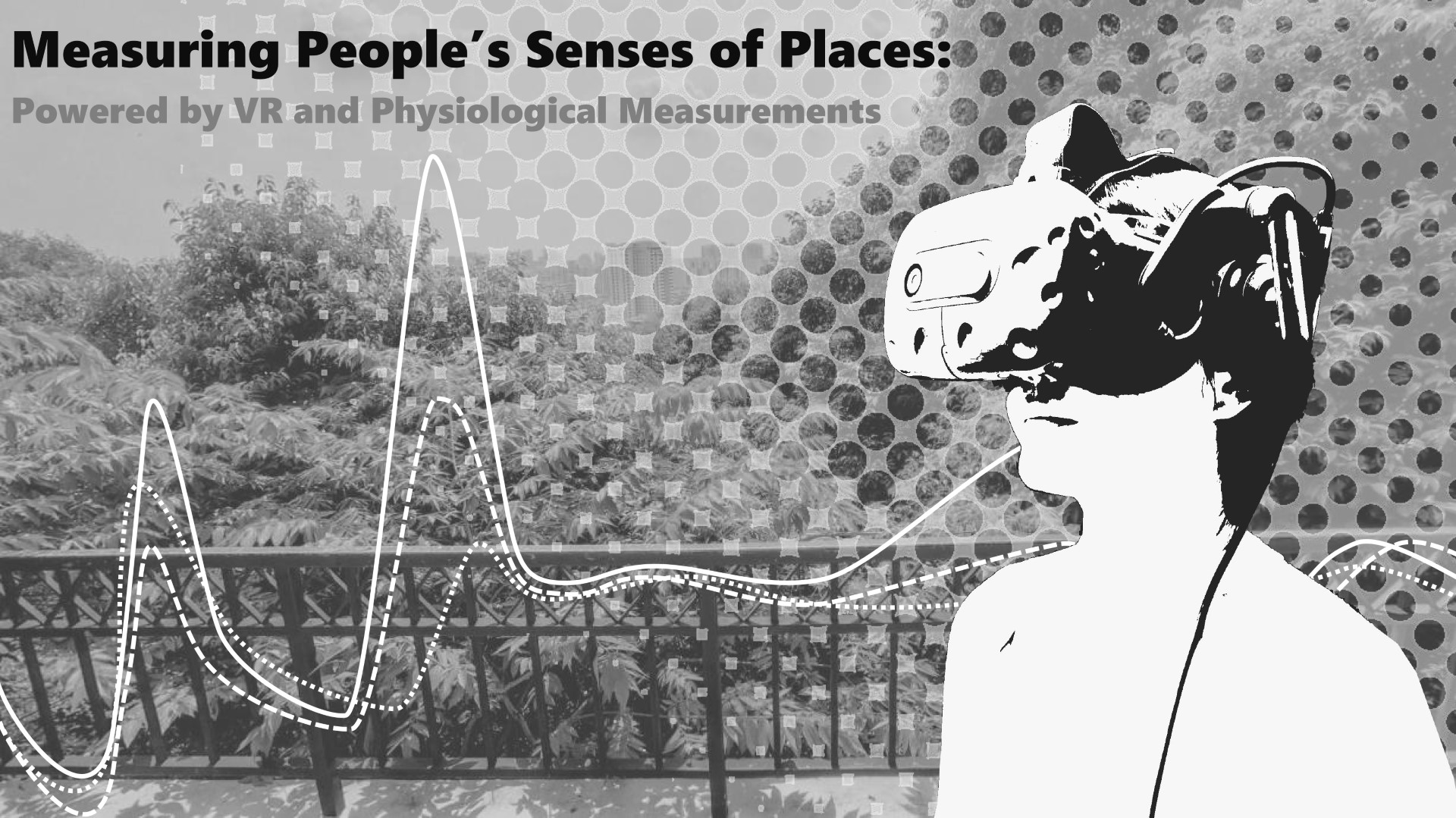
Measuring People’s Senses of Places: Powered by VR and Physiological Measurements
21st — 22nd April
9:30 AM — 6:00PM (SGT)
2 days
Think Tank 17
8 PAX
JIE LIU
BEIJING UNIVERSITY OF POSTS AND TELECOMMUNICATIONS
HANYANG HU
TSINGHUA UNIVERSITY
MENGYIN MAGGIE JIANG
CITY UNIVERSITY OF HONG KONG
NAME
DESIGNATION
NAME
DESIGNATION
Required Software: Excel, Python, Anaconda
Required Hardware: Laptop
REGISTRATION CLOSES 18 APRIL 2024
INSTRUCTORS

JIE LIU
ASSISTANT PROFESSOR: School of Digital Media and Design Arts, Beijing University of Posts and Telecommunications
Dr. Jie LIU is an Assistant Professor at the School of Digital Media and Design Arts, Beijing University of Posts and
Telecommunications. She is a researcher and lecturer in computer-aided architecture design, with her main research
interests in human-building interaction design, parametrical design, virtual reality, immersive therapy environment design,
and other digital techniques implemented in conjunction with architecture design and the built environment. She obtained
her PhD in Architecture with distinguished dissertation honor from Tsinghua University in China and was a Visiting Ph.D.
Student in MIT. In 2020, she was appointed Assistant Research Professor and Post-Doc fellow at Tsinghua University.
During the past five years, Dr. Liu has been granted 10 research funding as a co-applicant and published 13 papers as the
first author in international conferences or prestigious journals. She was the recipient of the Young CAADRIA Award in
2019. She is also experienced in coordinating and teaching in the areas of architecture design, interaction design,
computational design, and digital fabrication to both undergraduates and graduates, as well as developing novel courses
and teaching methods.

MENGYIN MAGGIE JIANG
ASSISTANT PROFESSOR: CITY UNIVERSITY OF HONG KONG
Dr. Mengyin Maggie JIANG is an Assistant Professor at the City University of Hong Kong. She received her Ph.D. and
MSc in Experimental Psychology from the University of Oxford, and BA in Psychology from the University of Michigan
Ann Arbor. Her research interests are in social cognition – looking at how social factors such as life experiences and
contextual/cultural cues influence how the brain processes information.

HANYANG HU
PHD CANDIDATE: Dept of Architecture, School of Architecture, Tsinghua University
Hanyang HU is a Ph.D. student in the Dept of Architecture, School of Architecture at Tsinghua University, China. She
received M.Arch at College of Environmental Design, UC Berkeley and B. Arch from Wuhan Univeristy. She is part of
the project, Architectural Design in the Robot Age, and she explores how to utilizing robotic systems integrated into the
built environment to alter people’s behavior and emotional state. Her research work lies in the area of Human-Building
Interaction, Accessibility in Older Adults, and 3D Printing in Concrete.

Philip Yuan
professor and associate dean, Tongji University,
Honorary Fellow of American Institute of Architecture (Hon. FAIA).
co-founder, DigitalFUTURES Association,
Editor-in-Chief, Architectural Intelligence journal
founding partner, Archi-Union Architects & Fab-Union Technology
Philip F. Yuan is a professor and associate dean of the College of Architecture and Urban Planning at Tongji University, Honorary Fellow of American Institute of Architecture (Hon. FAIA). He is also the co-founder of DigitalFUTURES Association, a global educational initiative with a particular emphasis on the latest computational design and fabrication technologies, Editor-in-Chief of Architectural Intelligence journal, and founding partner of Archi-Union Architects & Fab-Union Technology. Yuan has served as Thomas Jefferson professor at University of Virginia (2019), the visiting professor at Massachusetts Institute of Technology (2019), and Royal Melbourne Institute of Technology (2021). He has also served as council member of UIA Professional Practice Commission (PPC).
Yuan was attributed with UIA 2023 The Auguste Perret Prize for Technology in Architecture. His work has been recognized with notable awards, including 2022 AIA Open International | Architecture Honor Award, 2022 Dezeen Award Best Civic Building, 2020 ACADIA Innovative Academic Program Award of Excellence and etc.
Yuan has participated in Venice biennale, Chicago biennale, Milan triennial, Tallin biennale, etc. His works have been collected by MOMA New York City, M+ Hong Kong and Centre National d’art et de Culture Georges Pompidou.




